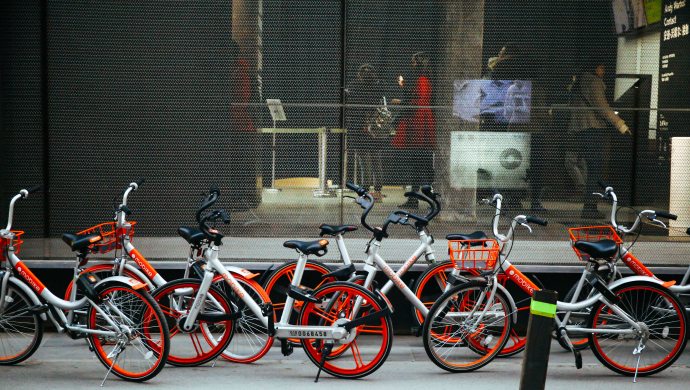Subsidies helped Didi Chuxing grow to dominance, but it also created a business-model that is burning cash like firewood. Should bike-sharing follow?

History is repeating itself in China’s tech sector, as Mobike and the Didi-backed ofo have started a subsidy race. This is arguably the biggest struggle of its kind in terms of user numbers after the influential subsidy war between Uber and Didi.
Both Mobike and ofo, China’s leading players in the bike sharing sector, coincidentally stated before Friday that their users are free to ride their bikes for an unlimited time, lasting from Friday to Sunday.
In addition, ofo is offering subsidies to users. Those who top up their account can have RMB 200 (USD 29) in their ofo wallet if they recharge RMB 100.
The subsidy race happening now is like a sequel to Uber and Didi’s battle, where Uber reportedly lost at least USD 1.2 billion in the first half of 2016, throwing subsidies into the Chinese market.
Also Read: Australian startup ecosystem pioneer Pollenizer to shut down in June
Didi Chuxing-backed ofo, founded in 2014, started its business by providing university students and teachers bike rental services inside university campuses. Ofo then expanded into cities with financing from big name investors including the America-based Coatue, Xiaomi, and CITIC Private Equity Funds Management Co. The company claimed that so far it has covered 22 Chinese cities, and seen 40 million rides.
Mobike, founded in Shanghai in 2015, has more advanced bikes, with built-in GPS trackers. Its wide array of investors include tech giant Tencent, electronics supplier Foxconn, and Singapore-based Temasek. In domestic expansion, Mobike has also entered 22 cities.
Also Read: JFDI, a pioneer in Singapore’s startup ecosystem, closes its bootcamp programme
Currently, these two leading players offer subsidies to users, with a vision to grab more market share and beat down the multitude of copycat companies that are springing up, including Bluegogo, Ubike, and Xiaoming Danche. Bluegogo, founded last year, on Friday announced that it raised RMB 400 million financing in January, and is planning to release 50,000 bikes in Beijing by mid March.
—
The article Are subsidies the key to occupying the bike-sharing market in China? first appeared on AllChinaTech.
Copyright: twinsterphoto / 123RF Stock Photo
The post Are subsidies the key to occupying the bike-sharing market in China? appeared first on e27.